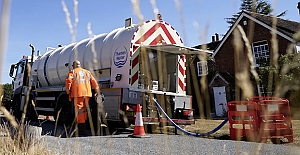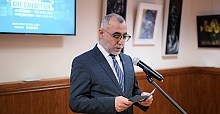Britain’s armed forces are preparing themselves for an armed strike against Syria, following the recent use of chemical weapons inside the country, probably by the Assad regime’s forces. As I said in a live interview on the al-Etejah (Iraqi Arab) TV channel last night, the justification for the UK, US, France and maybe Germany taking such a step, along with sympathetic Middle Eastern countries including Turkey, Saudi Arabia and Qatar, without UN approval, would be the relatively new concept within International Law, the Responsibility to Protect (R2P), about which I have written extensively. This asserts that if a government is unable or unwilling to protect its own people, then the international community has a responsibility to intervene on humanitarian grounds, providing there are reasonable prospects of success. Of course it would be preferable if the UN Security Council backed such a move, but that is currently impossible given the fact that Russia and to a lesser extent China are standing behind Bashar al-Assad — though in China’s case this is mainly because of its strong belief in the principle of non-interference in the internal affairs of a sovereign state.

The humanitarian need in Syria is self-evident. More than 110,000 Syrians have been killed, a high proportion of them civilians. There are now between four and five million Syrian refugees and whole swaths of cities such as Aleppo and Homs are a wasteland. Yet still Assad and his thugs continue to try to pound the people into submission. The situation is complicated by the fact that this is not a fight between good and evil, however. Evil the Assad regime certainly is — and has been for over 40 years — but the disparate rebel forces contain some pretty unpleasant characters and radical groups that seek to impose an alien, fundamentalist creed that is alien to the modern Syrian secular society. But things have now reached a stage at which the world cannot just sit by and watch a people and a country be annihilated. The problem is what exactly should be done, now that what President Obama described as the “red line” of chemical weapon use has been crossed? The imposition of a no fly zone is one obvious option, or carefully targeted use of cruise missiles against the regime’s military installations. But there is no guarantee of effectiveness. What certainly needs to be avoided is sending foreign — and especially Western — troops on the ground, which would not only lead to heavy casualties but also risks turning some of the anti-Assad population against the intervention. Russia meanwhile has warned the West against intervention. But I think the momentum now is unstoppable. Unless the Assad clique stands aside — which it has shown no willingness to do — Syria is going to be the latest in a string of Middle Eastern/North African Wars. And the poor United Nations will look even more impotent and marginalised than ever.
By jonathanfryer on Tuesday, 27th August, 2013


 After Nesil Caliskan a by-election will be held in Jubilee ward in Enfield
After Nesil Caliskan a by-election will be held in Jubilee ward in Enfield Publishing the analysis, Labour’s Cllr Ergin Erbil said Everybody in Enfield deserves basic rights
Publishing the analysis, Labour’s Cllr Ergin Erbil said Everybody in Enfield deserves basic rights Gaza-Israel conflict Statement from Cllr Ergin Erbil, Leader of Enfield Council
Gaza-Israel conflict Statement from Cllr Ergin Erbil, Leader of Enfield Council Cllr Ergin Erbil was elected as the new Leader of Enfield Council
Cllr Ergin Erbil was elected as the new Leader of Enfield Council The European Union called on Turkey to uphold democratic values
The European Union called on Turkey to uphold democratic values Turkish citizens in London said Rights, Law, Justice
Turkish citizens in London said Rights, Law, Justice The Council of Turkish Cypriot Associations Geneva response letter
The Council of Turkish Cypriot Associations Geneva response letter Sustainable Development and ESG, Will This Become the Course for Turkic World
Sustainable Development and ESG, Will This Become the Course for Turkic World Saran Media And Euroleague Basketball Extend Media Rights Partnership for Four More Years
Saran Media And Euroleague Basketball Extend Media Rights Partnership for Four More Years Will Rangers be Jose Mourinho’s next victim?
Will Rangers be Jose Mourinho’s next victim? Jose Mourinho's Fenerbahce face Rangers on Thursday
Jose Mourinho's Fenerbahce face Rangers on Thursday Inzaghi stated that they felt the absence of our national player Hakan Çalhanoğlu
Inzaghi stated that they felt the absence of our national player Hakan Çalhanoğlu Enfield Council at a special awards ceremony
Enfield Council at a special awards ceremony Enfield Council continues to invest in Edmonton, supported by £11.9 million in funding
Enfield Council continues to invest in Edmonton, supported by £11.9 million in funding Survey shows improvements in Enfield Council’s housing services
Survey shows improvements in Enfield Council’s housing services Why is Thames Water in so much trouble?
Why is Thames Water in so much trouble?















